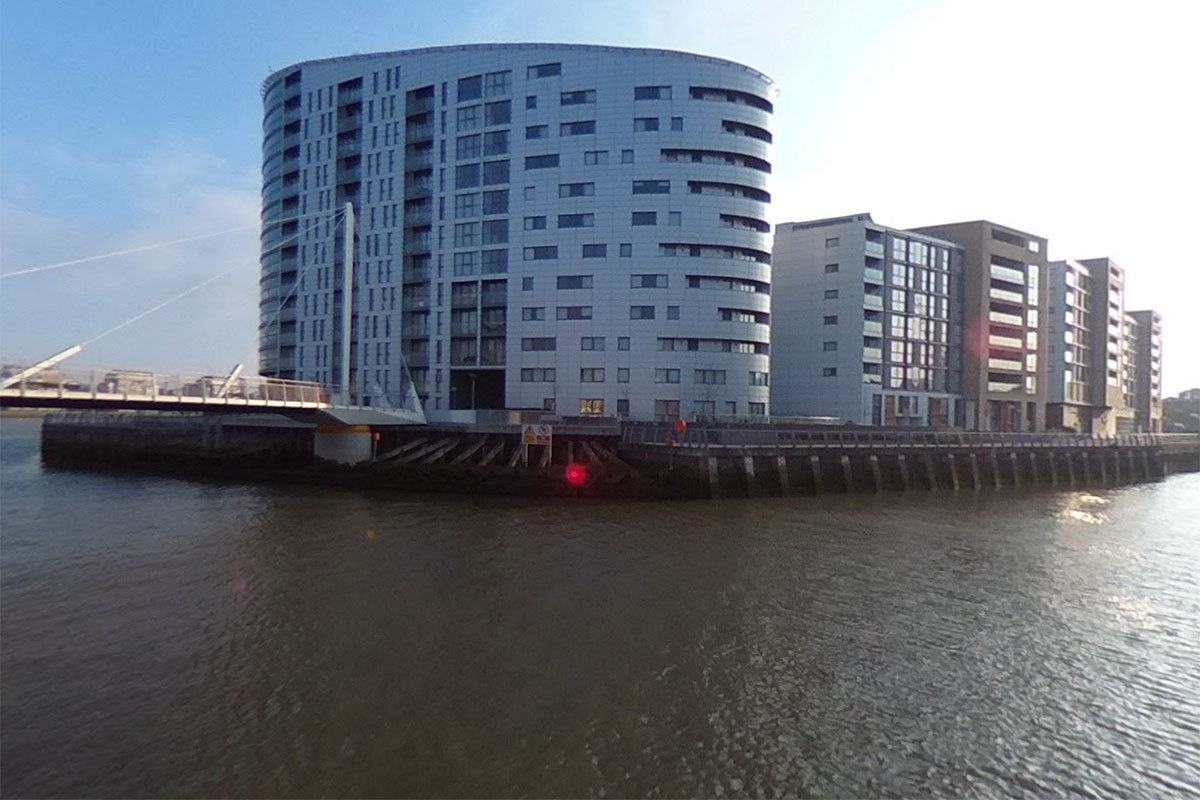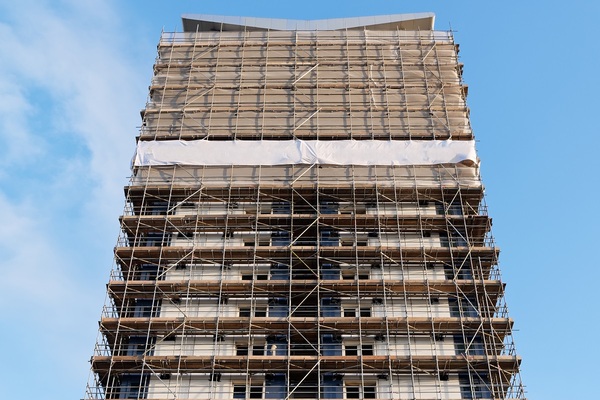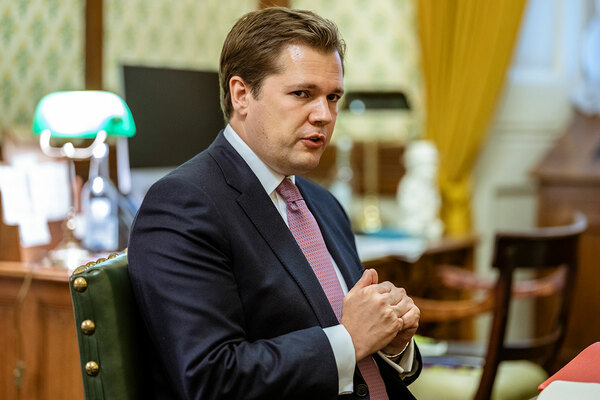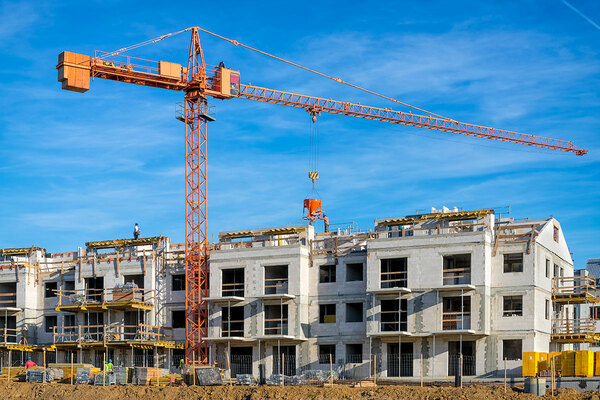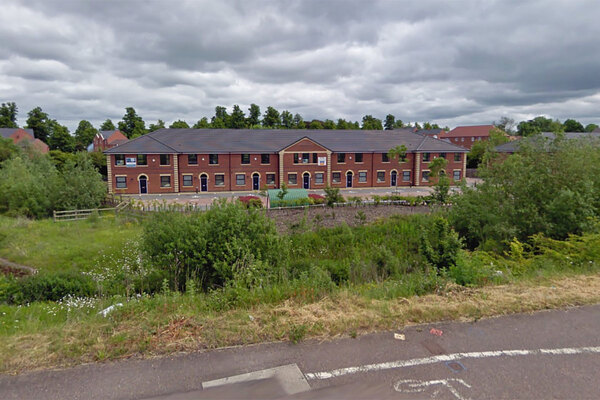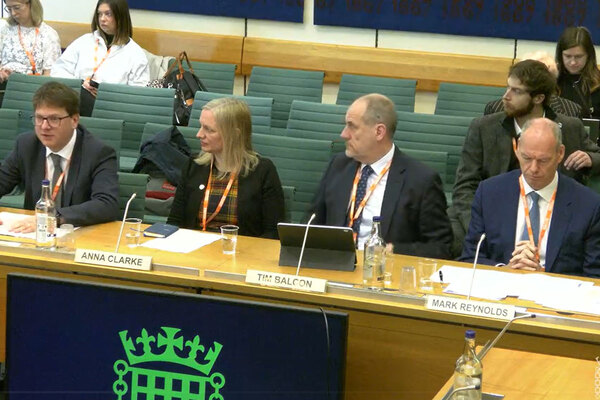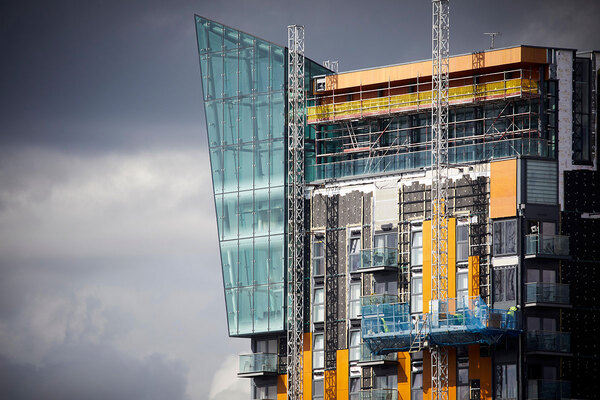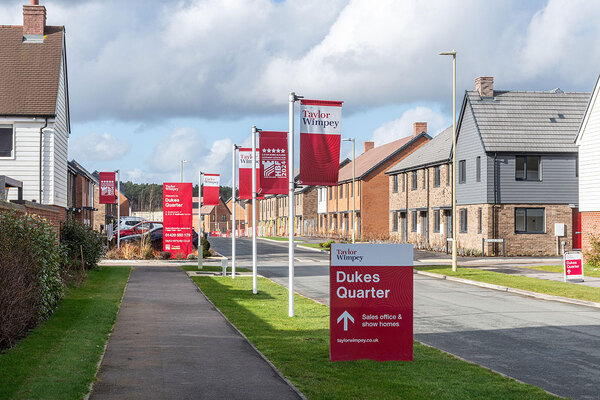Cladding removal works halted at New Capital Quay as country hits lockdown
Residents of a complex in south-east London with dangerous Grenfell-style cladding have been notified that the removal work will be halted due to the outbreak of coronavirus.
Residents of New Capital Quay (NCQ) in Greenwich were contacted by their managing agent, PMM Ltd, today to inform them that the cladding removal works would halt due to the outbreak.
The 11-block site has featured prominently in the nationwide crisis around dangerous cladding, having been one of the first private blocks to discover it had aluminium composite material (ACM) on its walls, similar to that used on Grenfell Tower.
A warranty claim was accepted with the National House Building Council (NHBC) agreeing to pay for the work in 2018. But today, progress was halted as many construction sites have closed.
In a note to residents today, PMM said: “Further to the prime minister’s announcement of new measures yesterday evening, the decision has been made to temporarily halt all cladding works at New Capital Quay.
"This morning we will facilitate sub-contractors access to collect their tools, equipment and personal belongings.
“The teams will work to ensure NCQ is safely weathered, isolated, shut/locked down while the restrictions are in
place.
“It is with regret that we have to put works on hold, however we must safeguard the health of those that reside at the scheme along with those that work on the project.
“The waking watch will continue to be present at the scheme to ensure residents safety is maintained.”
NCQ has around 1,000 flats of private and social housing, making it among the largest cladding sites in the country. It has Grenfell-style ACM cladding, alongside combustible Kingspan K15 insulation.
Residents have previously said that Galliard Homes’ delay in submitting a planning application to remedy the cladding on the scheme delayed the start of the work. Replacing the cladding across the whole project was set to take almost six years, before this delay.
The site was originally built by Galliard Homes, with the developer among the firms to reveal they were closing sites this morning.
Don ‘O Sullivan, chief executive, said: “We are a London business and we are taking this action in support of our world class superheroes in the NHS, as they take on the fight of their lives to keep us safe. This should be the priority for all of us today.”
The halt of works to remove cladding from NCQ will raise fears that other sites will also delay as the country goes into lockdown.
There are currently 132 sites where the removal of Grenfell-style cladding is underway: 75 in the social housing sector, 39 in the private sector, 12 student blocks, four hotels and two public buildings. A further 181 have not yet started.
An as-yet-unknown number of buildings will require the removal of other forms of dangerous cladding – such as timber and high-pressure laminate. Potentially tens of thousands of buildings below 18m will also require remediation work.
The London Fire Brigade (LFB) issued a warning this morning that the lockdown would increase the risk of domestic fire.
Dan Daly, assistant commissioner for fire safety at the LFB, said: “It’s absolutely vital that in these uncertain and unprecedented times, people don’t forget about basic fire safety in the home.
“We are not trying to scaremonger, but clearly with increased numbers of people indoors for much longer periods of time, there is a heightened risk of fire."
PMM was contacted for comment.
New Capital Quay - Galliard statement in full
Following the Coronavirus briefing from Downing Stret by the Prime Minister on Monday 23 March, Galliard took the decision to close Galliard Construction sites.
This included the re-cladding project underway at New Capital Quay in Greenwich. The headline reasons for this decision:
1. With 160+ operatives on the project; stopping works took those personnel off of the public transport network – providing some relief and space for our NHS heroes using those same tubes and buses.
2. Providing 160+ operatives with proper welfare arrangements and keeping to the ‘social distancing’ guidance is not possible.
3. At the outset, Galliard chose to avoid using scaffolding which would cover over the outside walls and apartment windows - so that residents could continue to enjoy the spectacular Thames River views and have uninterrupted daylight. The alternative is a slower more expensive method, it is based on using mobile elevators, mast climbers and other powered access equipment. This does mean that small teams must work together on these platforms, appropriate distancing is not possible.
4. With the imposition of the lockdown, New Capital Quay residents are, like everyone else, now working from home. As a result the daytime occupancy of New Capital Quay has rocketed from normally less than 150 persons to almost 2,500. The normal noise generated by machines and operations going about the re-cladding works would be very inconvenient for those residents temporarily working from home.
Having completed two large buildings there has already been a corresponding reduction in the waking watch on the development, but of course the remaining waking watch provision continues, unaffected by the temporary stoppage of the works. All continuing without the residents required to pay anything.
As soon as the guidance from Public Health England changes then the works at NCQ will re-start without delay. In the meantime, we confirm we have taken this appropriate action to protect our workforce, respect our residents and support our NHS.
